 In the 2015 election campaign, almost all newspapers were extremely pro-Conservative and rabidly anti-Labour. Bart Cammaerts writes that if almost all media are so enthusiastically choosing the same ideological side, this will inevitably have a profound impact on public opinion which is dangerous for democracy.
In the 2015 election campaign, almost all newspapers were extremely pro-Conservative and rabidly anti-Labour. Bart Cammaerts writes that if almost all media are so enthusiastically choosing the same ideological side, this will inevitably have a profound impact on public opinion which is dangerous for democracy.
The day after the unexpected defeat of the Labour leader Neil Kinnock in the 1992 election, the Murdoch-owned tabloid The Sun’s infamous headline read: ‘It’s The Sun wot won it’. During the 1992 campaign it seemed as if the Tories would lose and Labour would win. It was a campaign during which Kinnock was attacked hard and hit below the belt repeatedly by the mainly right-wing media in the UK. Just as today, it turned out differently and John Major won a convincing majority; Kinnock left the political stage.
In the recent 2015 campaign, all the newspapers, bar the Guardian and the leftist tabloid Daily Mirror, were extremely pro-Tory and rabidly anti-Labour. This raises two important questions:
1. How come nearly every national newspaper in the UK supports one specific party in an election campaign?
2. Did this heavily skewed media support have an influence on the final outcome? Was it the media wot won it (again)?
Ownership by billionaires
The answer to the first question is relatively simple. Almost all the newspapers in the UK are the personal property of billionaires: the Australian media tycoon Rupert Murdoch owns The Sun and The Times, Viscount Rothermere the Daily Mail, the Barclay brothers The Daily Telegraph and the Russian oligarch Lebedev The Independent and The Evening Standard. Together, these men are worth a staggering £12 billion. Their interests are simply better served by a right-wing party, like the Conservatives, than by Labour, who during this campaign adopted a more pronounced leftwing position than during the Blair years. But there’s more to this than mere capitalist interests.
If we analyse the election manifestos of the Labour party and the Conservatives, it is striking that there is little mention of the media in the manifesto of the Conservatives, except a reduction of the funding for the BBC, something the rightwing media would applaud. Labour, on the other hand, clearly stated that they were going to do something about the lack of pluralism in the British media and that they wanted to promote ethical media. Labour was, in other words, planning to implement the recommendations of Lord Leveson. The British media owners considered these recommendations as something evil, as a blatant interference in their freedom of expression and have done everything possible to prevent their implementation. This is also one of the reasons for their very dirty media war against Labour and for their very personalized fight against ‘Red Ed’, which was waged even more fervently compared to the attacks against Kinnock in 1992.
Uncritical loudspeaker
The answer to the second question, i.e. has the media helped Cameron win an overall majority and if so to what extent?, is more complex. The large part of the British media, broadcasters included, have served as an uncritical loudspeaker for the Tory campaign. No effort whatsoever was made to maintain the illusion of impartiality and objectivity so often acclaimed by journalists. Without falling into a simplistic argument of a stimulus-response effects model, it is clear that the UK media did set a certain tone, they outlined the contours of public debate and they have had an influence on how and on what people think.
Moreover, most people inform themselves about politics through the media, especially during an election campaign. So, if almost all media are so enthusiastically choosing the same ideological side, this will inevitably have a profound impact on public opinion which is dangerous for democracy. I would even go as far as arguing that the British media has acted in a blatantly anti-democratic way during this election campaign.
At the same time, we must also recognize that what drives people to vote for or against a particular party is complex and can not be merely reduced to their media consumption. There are many scientific studies out there which conclude that the influence of the media on the electoral behaviour is often very minimal. It is not easy to isolate the exact influence of the media on electoral behaviour and more research will be needed to ascertain what precisely happened during this campaign.
What is clear, however, is that social media has had no or very little impact at all. The hashtag #Milifandom and the nearly 10 million followers of comedian Russell Brand did not make a difference, except then that they made many commentators, myself included, believe that a Miliband government belonged to the possibilities.
Note: This article gives the views of the author, and not the position of the British Politics and Policy blog, nor of the London School of Economics. Please read our comments policy before posting.
 Bart Cammaerts is Associate Professor and Director of PhD Programme in the Media and Communications Department at the London School of Economics.
Bart Cammaerts is Associate Professor and Director of PhD Programme in the Media and Communications Department at the London School of Economics.


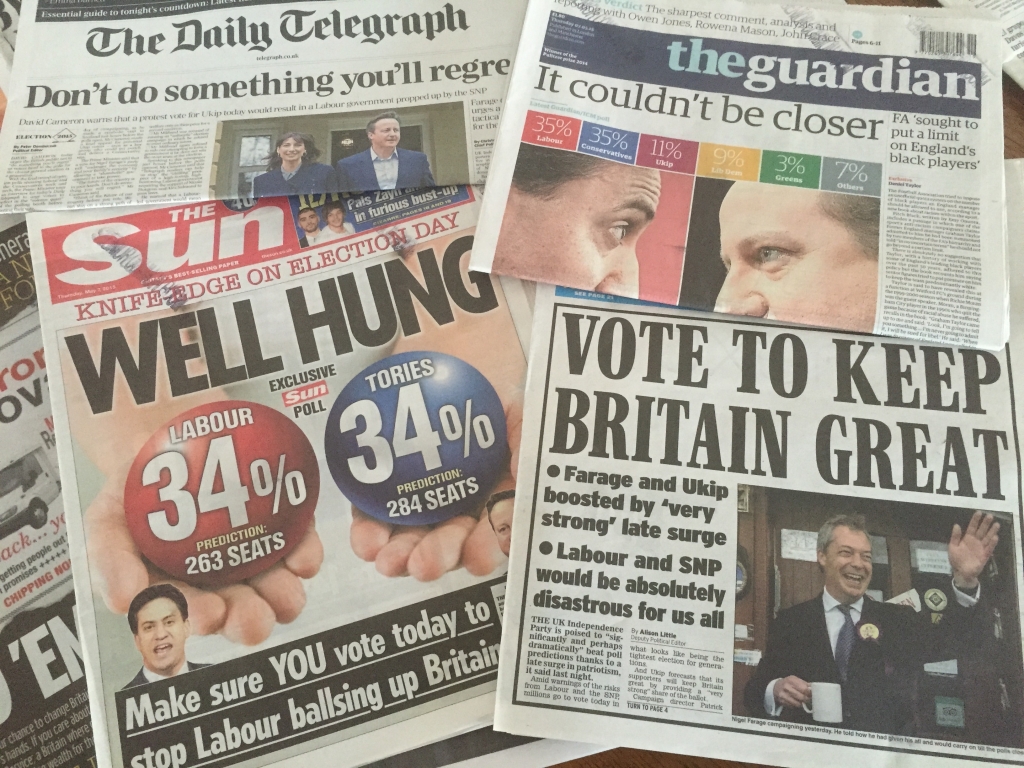

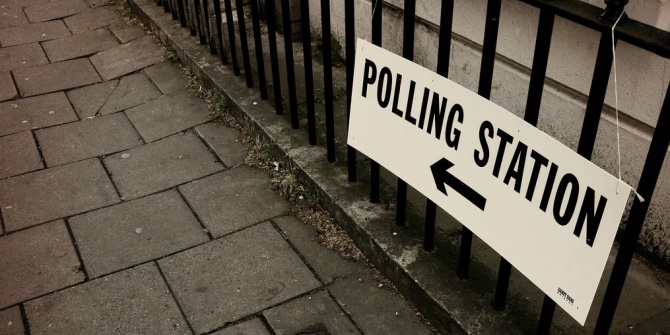
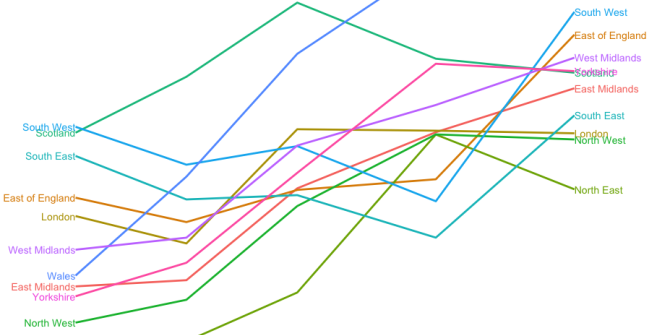
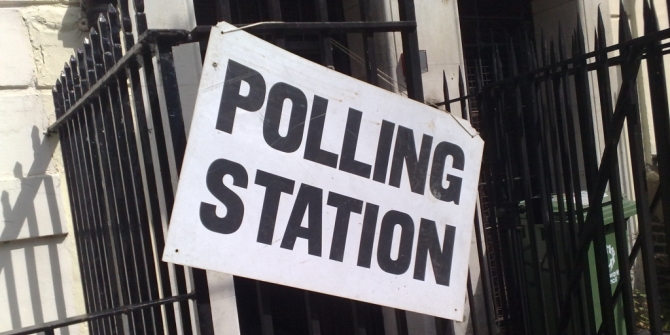
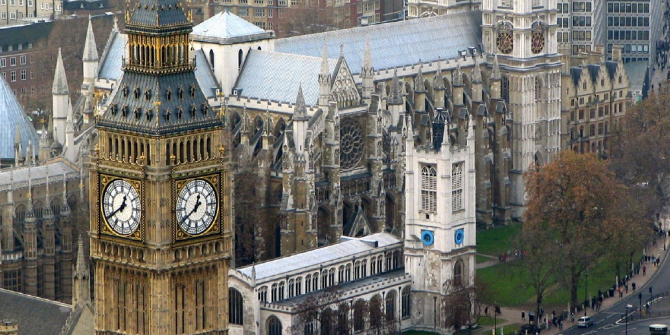

I was under the impression that the fear of the SNP stirred up by the Tories & the media drove people away from Labour and back to the Tories.
I didn’t really understand why all of the opinion polls failed to show the SNP polling on a daily basis.
Was that incompetence or a devious plan. Either way it seemed pretty bizarre to ignore them.
And incidentally…one doesn’t tend to see “right wing” people going around blaming the Guardian, The Mirror, The BBC, Channel 4 and the left wing dominated internet for the coalition in 2010 or the previous three Labour wins. During this period Tories just accepted that the mood of the country was to give a more left wing politics a try (that worked out well!) This sort of “sour grape” opinion piece seems to be the sole preserve of The Left.
You could say that the Labour lost the Election when Cameron dragged, Clegg & Ed Millband up to Scotland as representatives of the no vote against Scottish Independence.
In a stroke Labour lost its credibility with the working class voters in Scotland.& laterly its MP’s.
Was this a cunning & devious plan by Cameron?
there is a shockinhg and anti-democratic bias towards the Conservatives in the press. It’s an old-boys-network, ‘you scratch my back’ club where the Tory party donors (eg the criminal Rupert Murdoch and his cronies) are dictating policy over and above our heads, and spewing out daily propaganda for the party.
Shocking, repulsive stuff. Anyone who voted Tory should be ashamed.
You of course meant to say New Labour. Or maybe not!
Given that ‘New Labour’ was coninuing policies of deregulation (including finance) and privatisation (including of elements of the NHS, such as NHS Logistics – with no business case ever given), it can hardly be viewed that the Blair governments were very ‘left’.
Tony Blair was, after all, Mrs ~T’s ‘greatest achievement’, apparently. He continued policies that were essentially neo-liberal.
One saw in the 2015 election, when Labour attempted to be a little more leftwards, how the media reacted. Not only was press regulation on the agenda, so was tackling non-doms, which would have impacted on Rothermere and (IIRC) the Barclay brothers.
What a lot of left wing rot. The written press was split more or less 50/50 (but with the left wing papers being far more vociferous in their support for Labour and intense in their attempted hatchet job on the Conservatives) and it seems to me that the TV news was, and still is, extremely pro left (The BBC and Channel 4 may as well be media arms of the Labour party for what they are worth) On top of this the internet is famously left wing due to the nature of it’s relatively young audience/participants. The fact that the Conservatives won is wholly a reflection of the fact that the majority of the country can see that they govern sensibly, look after the economy and don’t believe in quasi communist redistribution economics. The fact that Pollsters thought it was ok to skew the results of their polls by essentially just asking young people how they were going to vote just shows the contempt that older people (largely Tory voters) are held in by such people.
Som of the commenst sem to have been removed?
I knew that the Tories would win England, but not Scotland. I think Russell Brand put off a lot of older voters, as they could see what ‘a pound shop’ Revolutionary Socialist he really was! Russell Brand is a hypocrite! Russell Brand also desires to be the next Labour Party Leader or at least Labour’s Lord Mayor of London, as our beloved Boris heads for the Commons.I think Nigel Farage should contest some vacant by-elections, I reckon he might win another seat. Without Nigel Farage & UKIP and Boris Johnson & TORY , the U.K. will soon fall apart and Scotland will enter the E.U. as a separate nation! This election was unfair to the UKIP party and the UK itself. As for Miliband and Clegg, good riddance, they were rubbish!
I agree with several others who have commented already. This is an astonishingly poor article, particularly for someone with the academic credentials the author has. The absence of evidence or examples indicating the existence and extent of any bias is a particularly bad flaw. Certainly in relation to the broadcast media evidence needed to be provided as any bias there is certainly not self evident.
The concession towards the end of the article that many empirical studies conclude that the impact of media coverage on voting behaviour is minimal somewhat undermines the tone of much of what precedes it. Certainly it doesn’t fit particularly well with the previous assertion that if “…almost all media are so enthusiastically choosing the same ideological side, this will inevitably have a profound impact on public opinion which is dangerous for democracy”.
One relevant study that does come to mind is that from the U.S. by Knight and Chiang (2008) who found that the impact of newspaper endorsements was heavily dependent on whether the endorsement ran counter to the paper’s generally perceived political stance. Thus the endorsement of a Democratic candidate by a generally Democrat supporting paper has far less impact than if the same paper endorses a Republican. This suggests in a UK context that election coverage supportive of the Tories from newspapers seen as generally supportive of the Tories is unlikely to have much impact.
Let’s be clear why the myth of the powerful media baron influencing large numbers of voters continues to have credence in some quarters in the absence of much supporting evidence. It allows people to de-legitimise votes cast for parties they don’t like. The argument being that “that lot never really win elections, they steal them by having their friends in the press con a sufficient number of poor, ignorant, easily led sheeple into casting a vote for them”.
Erm, we can read you know! I read the press and watched tv during the election and the article is spot on…
Well thats settled then. Your assertion coupled with that of the writer of the article is enough for me. No empirical investigation needed.
I’m surprised at the commenst here to be frank. The bias is actually self evident, if you follow the headlines daily as I do ( I work in a paper shop) and it’s no secret that David Cameron has links with Rupert Murdoch is it?
Its not the bias that’s important. Its the censorship that goes with it.
And with regard to the TV NewsMedia, the brainwashing.
Having read a John Pilger article on our shocking foreign policies I can only agree.
The Independent and Evening Standard didn’t declare support till the last moment and the Express supported UKIP. The Daily Mail ran almost as many stories about UKIP (according to a comprehensive Twitter analysis) and all media covered the SNP disproportionately. This article offers absolutely no evidence for its claims which is surprisingly for the LSE. Are we just supposed to take your word for the level of bias?
Given this is an LSE blog the analysis is stupendously weak. No evidence is given as to the extent of the bias – it is meant to be self evident. Yet as someone mentioned the independent was not pro Tory till the end, ditto the Evening Standard. The Daily Mail provided significant coverage of UKip according to an actual content analysis and media outlets disproportionately covered the SNP and UKIP. Lib Dems received less coverage than these minor parties despite being part of the government. This just reads like another moaning Labour supporter.
Anybody who uses the London main stream news media as their main source of information has no idea what is going on.
If they had been told that a National road privatisation company had been set up supported by all three main parties it might have been a different election debate.
This article doesn’t quite ring true. There were quite a few papers which presented the Labour campaign fairly and didn’t simply serve as a megaphone for tory interests. For instance, it would be incorrect to describe the Independent (and its more-read sister paper ‘i’) as “extremely pro-tory and rabidly anti-labour”. Their final (rather half-hearted) endorsement was of the coalition, and the Liberal side of it at that, while the paper’s coverage has been consistently fair to labour and critical of tory policy and campaigning. The same goes for the Economist, which endorsed a conservative vote on the grounds that it would make a second coalition more likely. The Times, meanwhile, despite belonging to Murdoch and finally advocating for the tories in a leading article, offered some very balanced coverage through the campaign.
On the other side, some papers (such as the Express) were actively critical of both labour AND the tories. The Express seemed to be primarily interested in promoting UKIP.
Social and new media do represent a counterweight to the big pushes of the right-wing press – but as you say, this does not seem to translate very effectively into votes, mainly because of the demographic gap in voting.
The issue doesn’t seem to be whether the media are one-sided in their political promotions, but rather whether people coming from various perspectives are motivated to actually cast a vote. Newspapers are of hugely declining significance in the British political sphere.
It’s very plausible that social media had little effect on the election outcome. It’s not evidence for this view, however, that two things that happened in social media did not result in a Labour landslide.